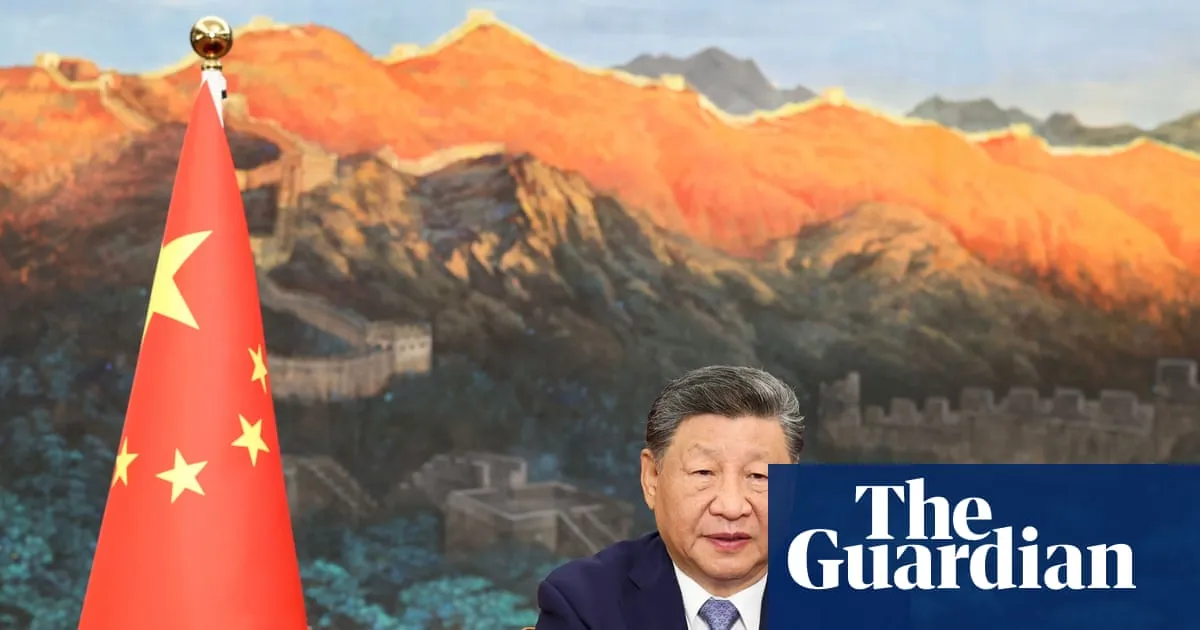
On Wednesday, China unveiled its latest plans to reduce greenhouse gas emissions, prompting a sharp backlash from experts who argue that these targets are far too weak to prevent a potential global catastrophe. As the world’s second-largest economy and the leading source of carbon dioxide emissions, China's approach to transitioning to a low-carbon economy is crucial in determining whether the planet can maintain safe temperature levels.
China aims to cut emissions by 7% to 10% from their peak by the year 2035. However, many experts believe that a much more ambitious target of 30% reduction is not only feasible but essential. President Xi Jinping announced these plans during a summit of world leaders at the UN General Assembly in New York, where discussions focused on the escalating climate crisis. Notably absent was US President Donald Trump, who had previously referred to climate concerns as a “con job.”
In his address, Xi made a veiled reference to the US, stating that "some countries" were not adequately addressing the climate challenge. He emphasized that the international community must stay focused on the right direction, urging nations to fulfill their responsibilities while respecting the rights of developing countries. Despite these assertions, experts have criticized China for its lack of leadership in terms of climate commitments.
Kaysie Brown, associate director for climate diplomacy and governance at the E3G think tank, remarked, “China’s 2035 target falls critically short of what is needed. It’s neither aligned with China’s economic decarbonization nor its own 2060 carbon neutrality goal.” She warned that without stronger near-term ambitions, China risks undermining its claims to uphold multilateralism and leadership in clean energy.
Interestingly, some insiders have noted that China has a history of setting modest targets only to surpass them significantly. “Underpromising and overdelivering is what we expect from China,” commented a climate diplomacy participant. Bernice Lee, a distinguished fellow at Chatham House, also highlighted that the business sector and other governments tend to follow China’s clear trajectory rather than focusing solely on its specific plans. “There are UN targets, and then there’s reality. The reality is that the country invested $625 billion in clean energy last year, accounting for 31% of the global total,” she stated.
China's national plan, defined as a nationally determined contribution (NDC) under the Paris Agreement, aims to elevate the share of non-fossil fuels in its energy mix to over 30% and expand its wind and solar capacity to 3,600GW—more than six times the levels seen in 2020. Currently, clean energy constitutes more than 10% of China’s GDP and contributes to about a quarter of its economic growth. Additionally, the country's production of solar panels has drastically reduced renewable energy costs by around 90% globally over the past decade.
Despite these advancements, China remains heavily reliant on coal power, which continues to receive significant political backing from Xi’s administration. Plans for new coal-fired power plants are still underway, contradicting a 2021 commitment to phase down coal usage. Paul Bledsoe, a former climate adviser in the Clinton White House, indicated that while China’s new commitment signals progress in its clean energy economy, it is not advancing swiftly enough. “China could reach these goals much sooner, potentially by the end of this decade,” he suggested.
China's commitments will be pivotal in shaping the upcoming Cop30 UN climate summit scheduled in Brazil this November. During this summit, all participating countries are expected to present their NDCs in accordance with the Paris Agreement. The UN’s climate chief has already acknowledged that the commitments expected in Belem are likely to fall short of the necessary emissions reductions needed to limit global warming to 1.5°C above preindustrial levels, as outlined in the 2015 Paris climate agreement.
The challenge for the UN, Brazil, and nations eager to avert the dire consequences of the climate crisis will be to find ways to enhance these inadequate national targets. Together, they must formulate a cohesive global strategy that aligns with the objectives of the Paris Agreement, ensuring that the world moves towards a sustainable future.